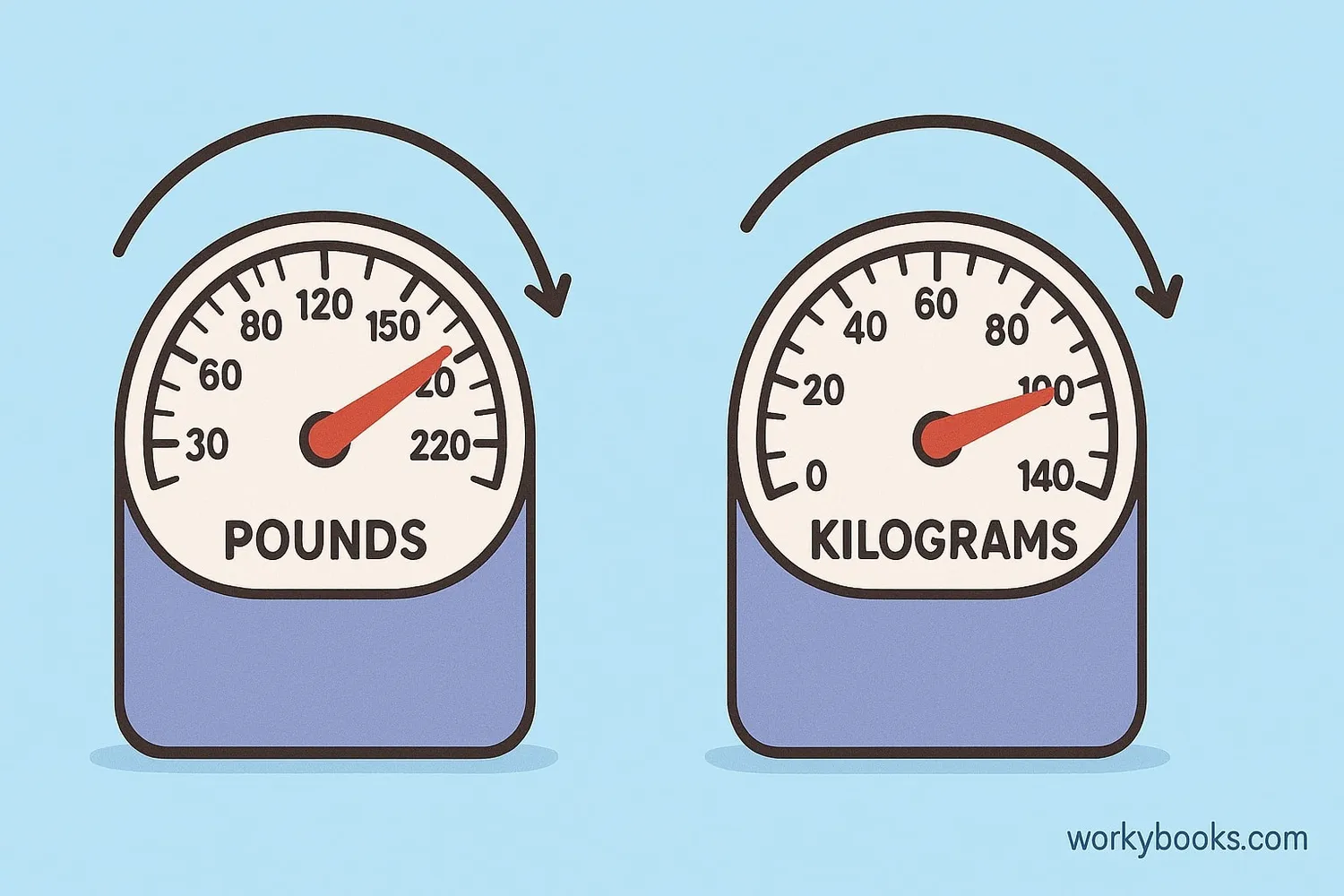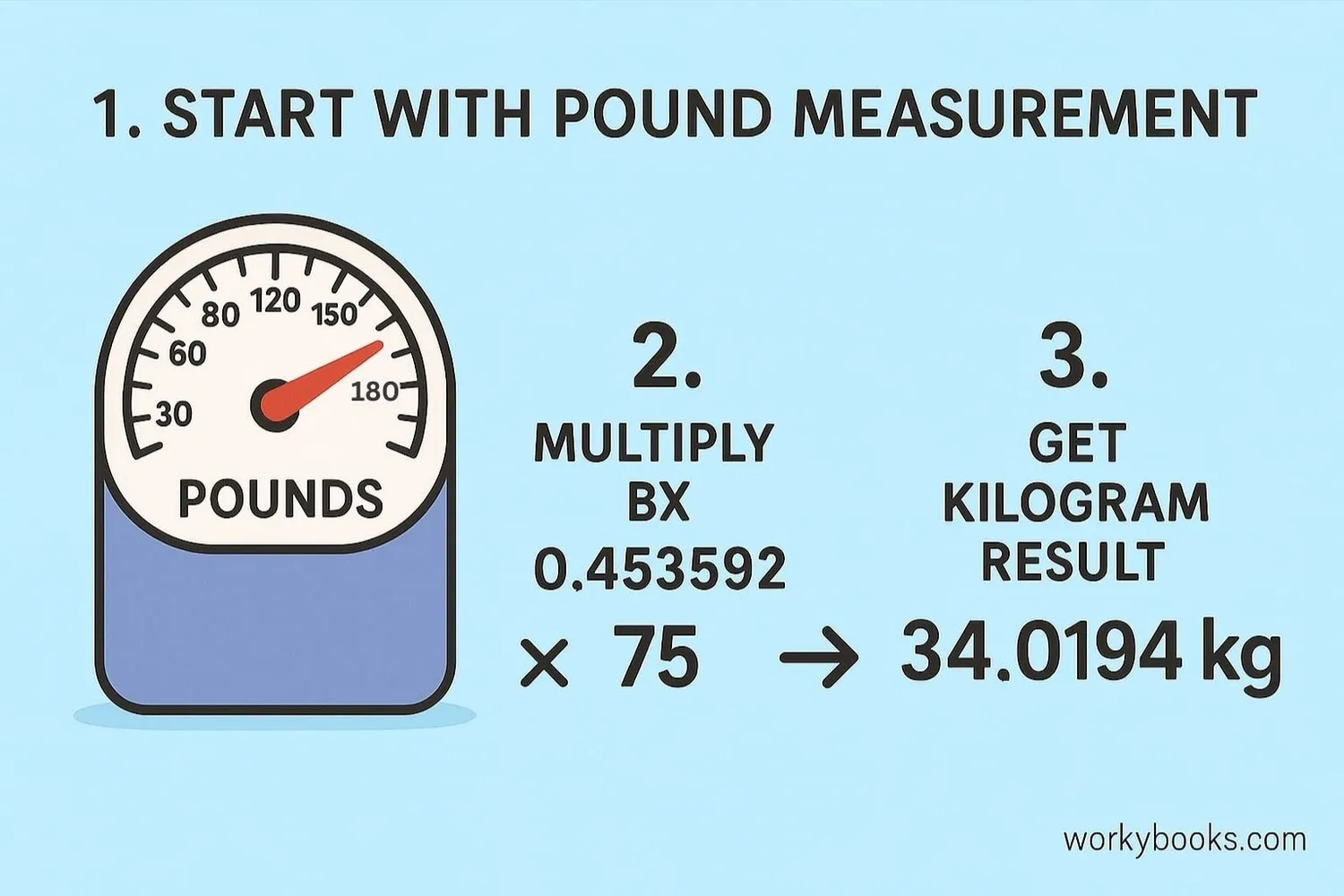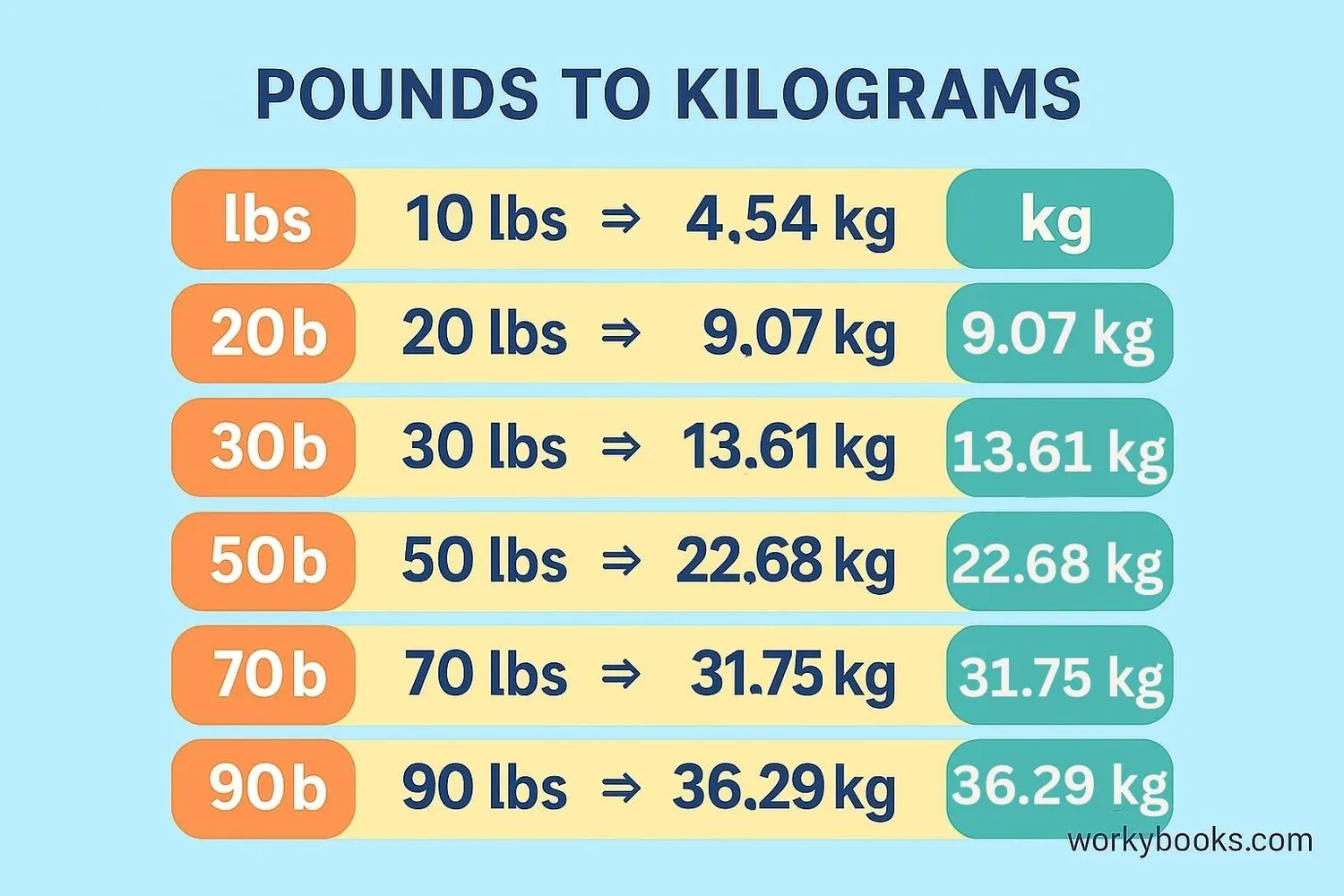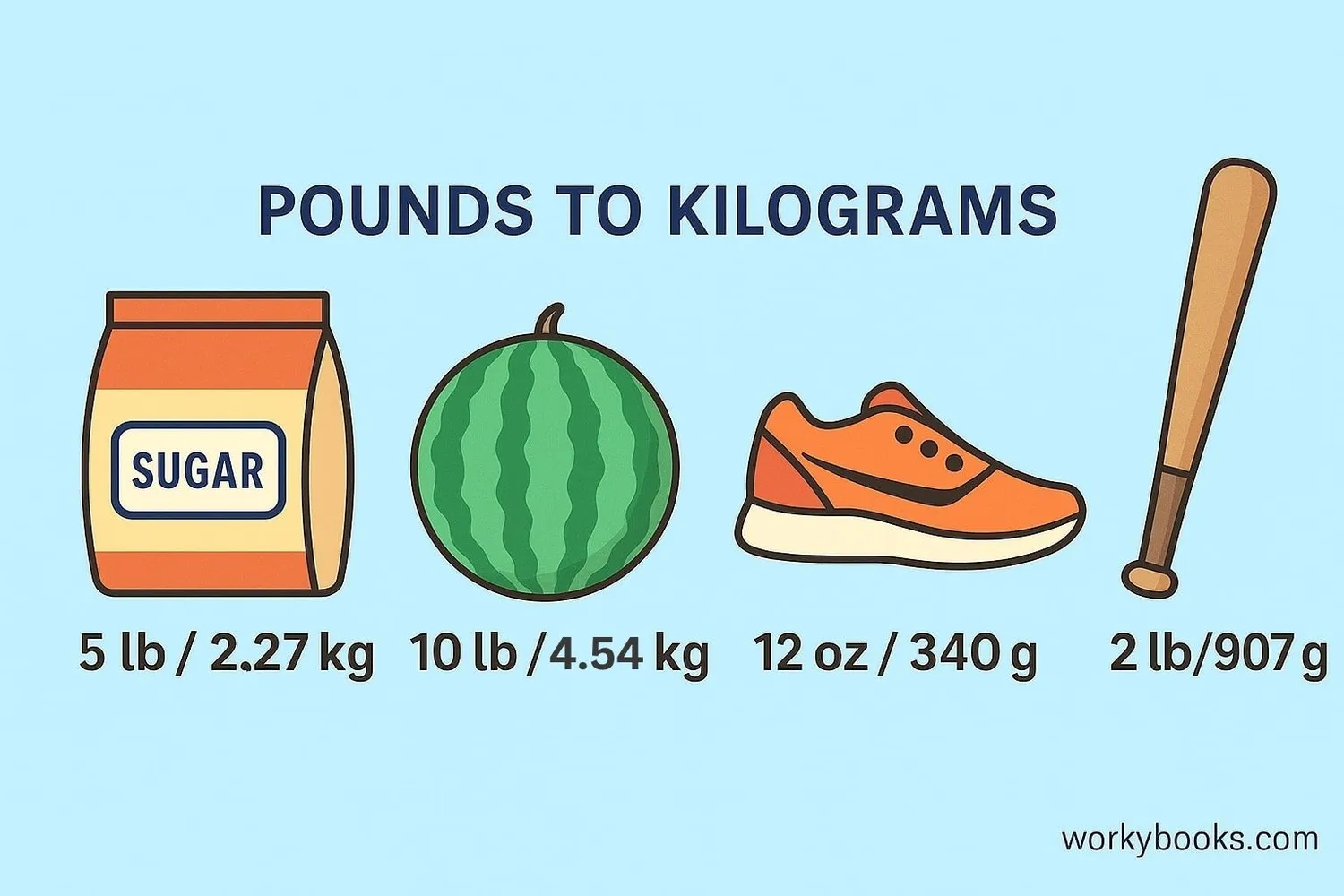Pounds to Kilograms (lbs to kg) - Definition, Examples, Quiz, FAQ, Trivia
Learn to convert between imperial and metric weight measurements with easy explanations and practice activities
What is Weight Conversion?

Weight conversion means changing a measurement from one unit to another. In this lesson, we're learning how to convert between pounds (used in the imperial system) and kilograms (used in the metric system).
Why do we need to convert? Different countries use different measurement systems. Most countries use kilograms and grams, while the United States primarily uses pounds and ounces. Scientists also use metric measurements for consistency.
One pound equals 0.453592 kilograms. To convert pounds to kilograms, we multiply the number of pounds by 0.453592. Understanding this relationship helps us compare weights and solve real-world problems.
Key Concept
1 pound = 0.453592 kilograms. This relationship is the foundation for all lbs-to-kg conversions.
How to Convert Pounds to Kilograms

Converting pounds to kilograms is simple once you remember the conversion factor:
Conversion Formula
To convert any measurement in pounds to kilograms, multiply the number of pounds by 0.453592.
Example: Convert 10 pounds to kilograms
Step 1: Start with the measurement in pounds → 10 lbs
Step 2: Multiply by 0.453592 → 10 × 0.453592
Step 3: Calculate the result → 4.53592 kg
So 10 pounds equals approximately 4.54 kilograms. Easy, right?
Remember
When converting pounds to kilograms, your answer will be a smaller number because kilograms are larger units than pounds.
Pounds to Kilograms Conversion Charts

Conversion charts help us quickly find equivalent measurements without calculating each time. Here are two useful charts for converting pounds to kilograms:
Pounds to Kilograms Weight Conversion Chart
| Pounds (lbs) | Kilograms (kg) |
|---|---|
| 1 lb | 0.45 kg |
| 5 lbs | 2.27 kg |
| 10 lbs | 4.54 kg |
| 20 lbs | 9.07 kg |
| 30 lbs | 13.61 kg |
| 40 lbs | 18.14 kg |
| 50 lbs | 22.68 kg |
| 60 lbs | 27.22 kg |
| 70 lbs | 31.75 kg |
| 80 lbs | 36.29 kg |
| 90 lbs | 40.82 kg |
| 100 lbs | 45.36 kg |
Common Weight Conversion Chart
| Pounds (lbs) | Kilograms (kg) | Approximate Equivalent |
|---|---|---|
| 2.2 lbs | 1 kg | Small pineapple |
| 5 lbs | 2.27 kg | Bag of flour |
| 10 lbs | 4.54 kg | Small dog |
| 25 lbs | 11.34 kg | Carry-on luggage |
| 50 lbs | 22.68 kg | Large suitcase |
| 100 lbs | 45.36 kg | Medium-sized dog |
| 150 lbs | 68.04 kg | Average adult |
Chart Tip
Notice that 2.2 pounds equals approximately 1 kilogram? You can use this pattern to estimate conversions!
Real-World Examples

Let's practice conversion with some real-world examples:
Example 1: A bag of apples weighs 5 pounds. How much does it weigh in kilograms?
Solution: 5 × 0.453592 = 2.27 kilograms
Example 2: A newborn baby weighs 7.5 pounds. Convert this weight to kilograms.
Solution: 7.5 × 0.453592 ≈ 3.40 kilograms
Example 3: Sarah weighs 110 pounds. What is her weight in kilograms?
Solution: 110 × 0.453592 ≈ 49.90 kilograms
Example 4: A bag of rice is labeled 5 kilograms. How many pounds is this?
Solution: To convert kilograms to pounds, divide by 0.453592: 5 ÷ 0.453592 ≈ 11.02 pounds
Practice converting measurements you see around you - your weight, the weight of your backpack, or the weight of groceries!
Conversion Tip
To convert kilograms back to pounds, divide by 0.453592 or multiply by 2.20462.
Conversion Practice Quiz
Test your conversion skills with this 5-question quiz. Choose the correct answer for each question.
Frequently Asked Questions
Here are answers to common questions about pounds and kilograms conversion:
Measurement Trivia
Discover interesting facts about weight measurement systems:
Origin of the Pound
The pound as a unit of weight dates back to Roman times. The word "pound" comes from the Latin word "libra," which is why we use the abbreviation "lb" for pound.
The Kilogram Standard
For over 100 years, the official definition of a kilogram was based on a physical platinum-iridium cylinder called the International Prototype of the Kilogram, kept in France.
Space Measurements
NASA uses metric measurements for all its space missions. The Mars Climate Orbiter was lost in 1999 because one engineering team used metric units while another used imperial units for calculations.
Heiest Animal
The blue whale is the heaviest animal ever known to have existed, weighing up to 200,000 kilograms (440,000 pounds). That's equivalent to about 33 elephants!





